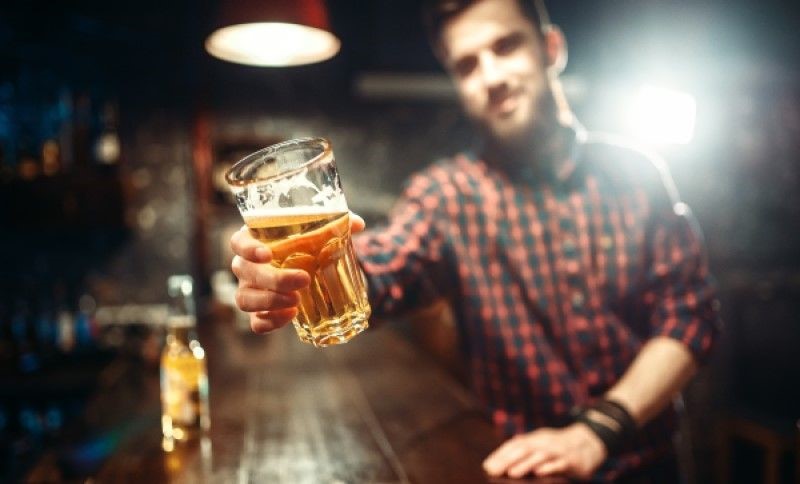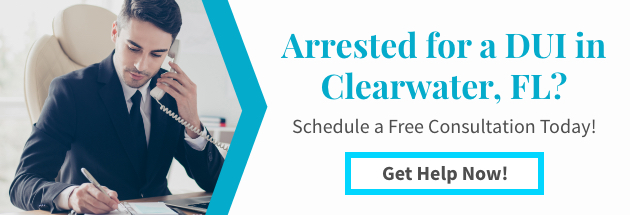Are you facing probation for a DUI or similar alcohol-related charge in the state of Florida? If so, you likely have many questions. One of the most commonly asked is, “Can I drink while on probation in Florida?”.
There is no single answer to whether you can drink while on probation, as several factors can influence the terms of your probation. The answer can vary: sometimes yes, you can, and sometimes no, you cannot. However, to help you out, we’ll shed some light on this topic. Keep in mind this information is only meant to serve as a brief introduction to the restrictions you may face if you are worried about drinking on probation. To ensure you fully comply with any probation terms (and to potentially avoid probation entirely if you are innocent), it’s still essential to coordinate with a qualified criminal defense attorney.
Drinking on Probation and Florida Law
For certain offenses, particularly those related to alcohol, like DUI (Driving Under the Influence), the court may impose a condition of total abstinence from alcohol. This means the individual on probation cannot consume alcohol in any quantity. The rationale behind such a restriction often relates to preventing recidivism, especially when alcohol was a significant factor in the original offense. Courts may enforce this through regular alcohol testing, which could include blood tests, breathalyzer tests, GPS monitors, or the use of Continuous Alcohol Monitoring devices (e.g., SCRAM bracelets).
In cases where total abstinence isn’t mandated, the court might impose a condition to refrain from excessive alcohol use. This is more subjective and can be harder to monitor. What constitutes “excessive” can vary, but generally, it means not drinking to the point of legal intoxication or impairment. This condition aims to allow some normalcy in social situations while still curbing potentially harmful behavior. Compliance might be monitored through random alcohol testing or self-reporting to a probation officer.
Some probation conditions may restrict the probationer from associating with specific individuals or frequent places where alcohol is the primary offering (e.g., bars or clubs). This condition is based on the understanding that certain social circles or environments can increase the likelihood of reoffending. The goal is to encourage probationers to maintain lifestyles and relationships that support their rehabilitation and compliance with probation terms.
There are instances where the court allows alcohol consumption under probation but with explicit conditions, such as not drinking and driving or not engaging in public intoxication. These conditions are tailored to prevent specific behaviors that could lead to reoffending or endangering oneself or others.
Individuals on probation should consider the risks versus benefits of consuming alcohol, even if not explicitly prohibited. The decision to drink alcohol while on probation should factor in the potential for impaired judgment leading to a probation violation or new criminal charges. The consequences of a violation can be severe, including the revocation of probation and imposition of the original jail sentence or other penalties.
What Happens if You Commit a First-Time Probation Violation in Florida?
Th
Revocation of Probation
- Immediate Consequences: The most direct consequence of a probation violation is the revocation of probation, which could lead to the activation of previously suspended sentences. This means that any jail or prison time that was put on hold in favor of probation could now be imposed. Or, it could mean jail alternatives.
- Judicial Discretion: The judge has the discretion to decide the extent of the punishment for a probation violation. For a first-time violation, the response might range from a warning to the full imposition of the suspended sentence, depending on the violation’s seriousness and the offender’s history.
Enhanced Penalties
- Extended Probation: A common response to a probation violation is extending the probation period, giving the court more time to monitor and rehabilitate the offender.
- Additional Fines: Violating probation can result in new fines or fees, adding a financial burden on top of any existing penalties.
- Stricter Conditions: The court may impose stricter probation conditions, such as more frequent check-ins with a probation officer, mandatory counseling or rehabilitation programs, community service hours, or electronic monitoring.
Impact on Driving Privileges
- While specific to driving-related offenses, it’s worth noting that non-driving-related probation violations can also indirectly affect driving privileges, especially if the violation involves the commission of a new crime that includes driving restrictions as a penalty.
Specific Examples
- Community Service: An individual might be required to complete a significant number of community service hours.
- Rehabilitation Programs: For drug-related violations, mandatory participation in drug treatment or rehabilitation programs can be ordered.
- Electronic Monitoring: In some cases, the court might order electronic monitoring to ensure compliance with curfew restrictions or to monitor the individual’s movements.
Legal Proceedings for Probation Violation
- Right to a Hearing: If accused of a probation violation in Florida, you are entitled to a hearing. This judicial proceeding determines whether the terms of your probation were indeed violated. It’s crucial because it ensures that any accusation of probation violation is scrutinized under the law, offering the accused a platform to contest the charges based on evidence.
- Evidence Presentation: During the hearing, both sides present evidence. If the violation involves alcohol consumption, breathalyzer tests or other forms of alcohol monitoring data might be central. It’s here that inaccuracies, such as false positives from equipment, can be challenged, often requiring expert testimony or technical evidence to refute.
What to Do if You Receive a Probation Violation
Receiving a notification of a probation violation can be a daunting experience, especially if it’s related to alcohol consumption when your probation terms restrict it. Understanding the steps to take can help you navigate through the process more smoothly. Here’s what you should do:
- Read and Understand the Violation Notice: Carefully review the details of the violation notice you’ve received. It should specify the nature of the alleged violation. Understanding the specifics is crucial for preparing your response.
- Contact Your Probation Officer: Reach out to your probation officer as soon as possible. They can provide clarity on the violation notice and what it means for your probation status. This is also an opportunity to discuss any mitigating circumstances or misunderstandings that might have led to the violation notice.
- Consult with a Criminal Defense Attorney: Securing legal representation is highly advisable. An attorney who specializes in probation matters can offer guidance on your rights, potential defenses, and the best course of action. They can also represent you during any hearings and negotiate on your behalf.
- Prepare for the Probation Violation Hearing: If your case goes to a hearing, you’ll need to present evidence and possibly witnesses to support your case. Work closely with your attorney to gather all necessary documentation and prepare your defense. This might include evidence that you did not consume alcohol if that’s the alleged violation or other mitigating evidence showing compliance with probation terms.
- Consider Mitigating Factors: If the violation is based on a misunderstanding or a one-time mistake, be prepared to discuss these factors. Demonstrating remorse, making efforts to comply with probation, and taking any positive steps (such as attending alcohol education classes voluntarily) can be beneficial.
- Follow Court Instructions: If the court imposes additional requirements or modifies your probation, follow these instructions meticulously. Failure to comply with new court orders can result in further penalties.
- Engage in Rehabilitation or Educational Programs: If alcohol consumption led to the violation, voluntarily participating in alcohol rehabilitation or education programs can demonstrate your commitment to avoiding future infractions.
- Maintain Compliance with Probation Terms: Moving forward, ensure strict adherence to all probation terms. Avoid any activities or situations where you might be tempted or pressured to consume alcohol if it’s prohibited.
- Keep Documentation: Keep detailed records of your compliance with probation terms, including dates and times of meetings with your probation officer, receipts for fines paid, and certificates from completed programs. This documentation can be valuable in disputing any future allegations of non-compliance.
Receiving a probation violation notice is not the end of the road. With the right approach and legal assistance, you can address the issue and work towards continuing your probation with a clearer understanding of its terms and the importance of compliance.
FAQs on Drinking Alchohol While on Probation
- How frequently might I be tested for alcohol consumption on probation? The frequency of alcohol testing can vary widely depending on the specifics of your probation terms and the discretion of your probation officer. It could range from random tests to scheduled checks, especially if alcohol use is a concern in your case.
- Are non-alcoholic beers or mocktails allowed while on probation for alcohol-related offenses? This depends on the strictness of your probation terms. If your terms specify no alcohol consumption, non-alcoholic beers might be discouraged due to their trace alcohol content. Always consult with your probation officer for clarification.
- Can I attend family gatherings where alcohol is served if I’m on probation? Attendance at such events usually requires the approval of your probation officer, particularly if your probation terms restrict your exposure to alcohol. Communication and prior approval are key.
- What should I do if I accidentally consume alcohol while on probation? If you accidentally consume alcohol, it’s important to inform your probation officer immediately and document the incident, including how the consumption was accidental, to mitigate potential violations.
- Is it possible to have alcohol-related probation conditions modified? Modifications to probation conditions can sometimes be requested through your attorney, especially if you can demonstrate good behavior or change circumstances. However, approval is at the court’s discretion.
Get Experienced Legal Representation
It’s also crucial that you work with a lawyer who understands how to fight these cases in Florida. Maybe you truly didn’t commit the first offense. If you were convicted but were subsequently charged with a first-time probation violation, you might not be guilty of it.
With help from Clearwater criminal defense attorney Dean G. Tsourakis, you can establish the facts of the case, boosting your odds of an ideal outcome. Dean has over 35 years of experience and has served as both a prosecutor and defense attorney, ensuring you receive strong representation.
on Apr 3, 2020




